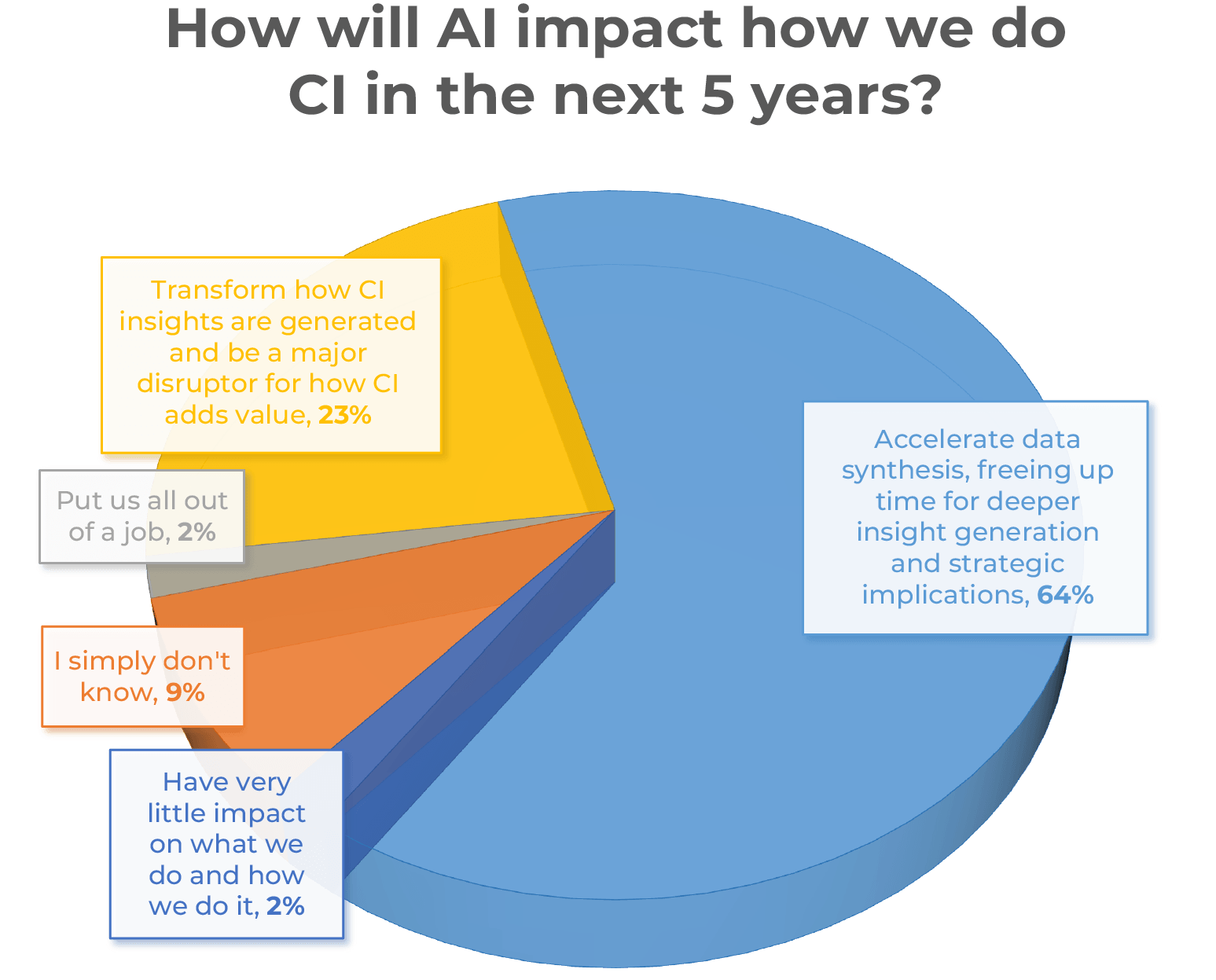Can AI really help you understand what matters in your market?
It can certainly help, but without strategic intelligence, AI can also mean ambiguous intelligence

The impact of AI across our industry will be profound. It’s already driving faster identification of novel drug targets and drug discovery, better patient identification, accelerated drug development, earlier diagnosis, and more personalized healthcare.
But we’d like to highlight another growing use of AI – the rapid creation of market and therapy area landscapes. Leaving aside, for now, the well-known concerns about intellectual property, data quality, security, and trustworthiness, we want to go a little deeper into what AI can and can’t do when it comes to understanding what matters in your market.
AI is already a brilliant, time-saving tool that can scan, select, group, summarize and present an incredible range of information in almost no time. We’ve seen what it can do to shorten the initial slog of preparing a market map or deep dive. It’s frankly amazing. But it’s far from perfect.
It’s like having a huge team of brilliant analysts working at the speed of light to produce a deliverable in seconds – but they’re junior analysts who don’t really know the industry, the disease area, your client’s challenges, or what all this insight really means for them. They also don’t know what they don’t know.
In short, the output is impressive, and fast, but still needs a lot of quality control, fine tuning of assumptions, and some human intelligence before it’s much use to you, or your clients. (If anyone says you’ll get client ready reports at the click of a button, you won’t. At least not yet.)
At Deallus, we know that really useful market landscapes are designed from the start as the foundation for developing strategy for a specific portfolio or brand. They provide deep, focused insight and understanding of the opportunity to identify the issues that really matter. They’re not just a summary of potentially relevant data and insights.
AI can, and should, be used as an efficient first step to shorten the insight and data gathering process. But this can only be done well, and safely, in partnership with experienced analysts and strategic thinkers who already know the disease area and competitive landscape. In other words, experts who can sort the wheat from the chaff, challenge and refine the AI output, and then build the analysis and implications from the perspective of what would drive or limit the success of the brand or portfolio.
There are some things that AI is already very good at, such as:
- Extracting key data from varied and extensive sources, like topline financials and key sales data, and presenting it in ready-to-use tables or graphs
- Distilling a set of qualitative research interview transcripts – the output will still need review and checking but it can reduce the time needed for manual analysis
- Summarising long text documents (or raw notes) into good, coherent, overviews or presentations with a logical story flow
But these outputs still need review and challenge from a human who knows the therapy area, understands the market dynamics, and has a feel for what is important and what isn’t.
Deallus has always been an early adopter of innovations in CI and healthcare consulting. We’re making considerable investments in AI/LLM-based offerings, and we’re piloting external and internal databases and tools, powered by AI, and supported by high-quality, trustworthy sources. Our tools are already helping us identify and triage CI intelligence that impacts our clients, streamline our ongoing analysis of external market landscapes, and efficiently generate the building blocks of new market maps or deep dives.
But, and this is crucial, these are just a foundation for our analysts and consultants to work with. We then apply a robust QC process, deep understanding of the therapy area dynamics, and years of experience driving success for brands, to bring out the real insights and implications for our clients.
And there’s one other crucial point that sometimes gets overlooked. AI can only assimilate the data it’s pointed at. It can’t look inside the heads of stakeholders and customers (at least not yet). That deep primary insight is still best gathered by one human talking to another. (It also can’t run a cross-functional workshop to help client teams align on the true meaning of the market insight and a developed strategy, but that’s another issue.)
In short, artificial intelligence can go a long way toward quickly telling us what’s going on in the market, but we still need experienced consultants, with strategic intelligence, to work out why it’s happening, and what it means for our clients.
Author – Stephen Small
March 2024

During a presentation on AI that Deallus gave at a major recent CI conference, we asked the audience of industry experts how they thought AI would impact how we do CI in the next 5 years.
The responses to our poll support our view that the impact of AI within the CI profession is expected to land somewhere between “Accelerate data synthesis, freeing up time for deeper insight generation and strategic implications,” and “Transform how CI insights are generated and be a major disruptor for how CI adds value”.



